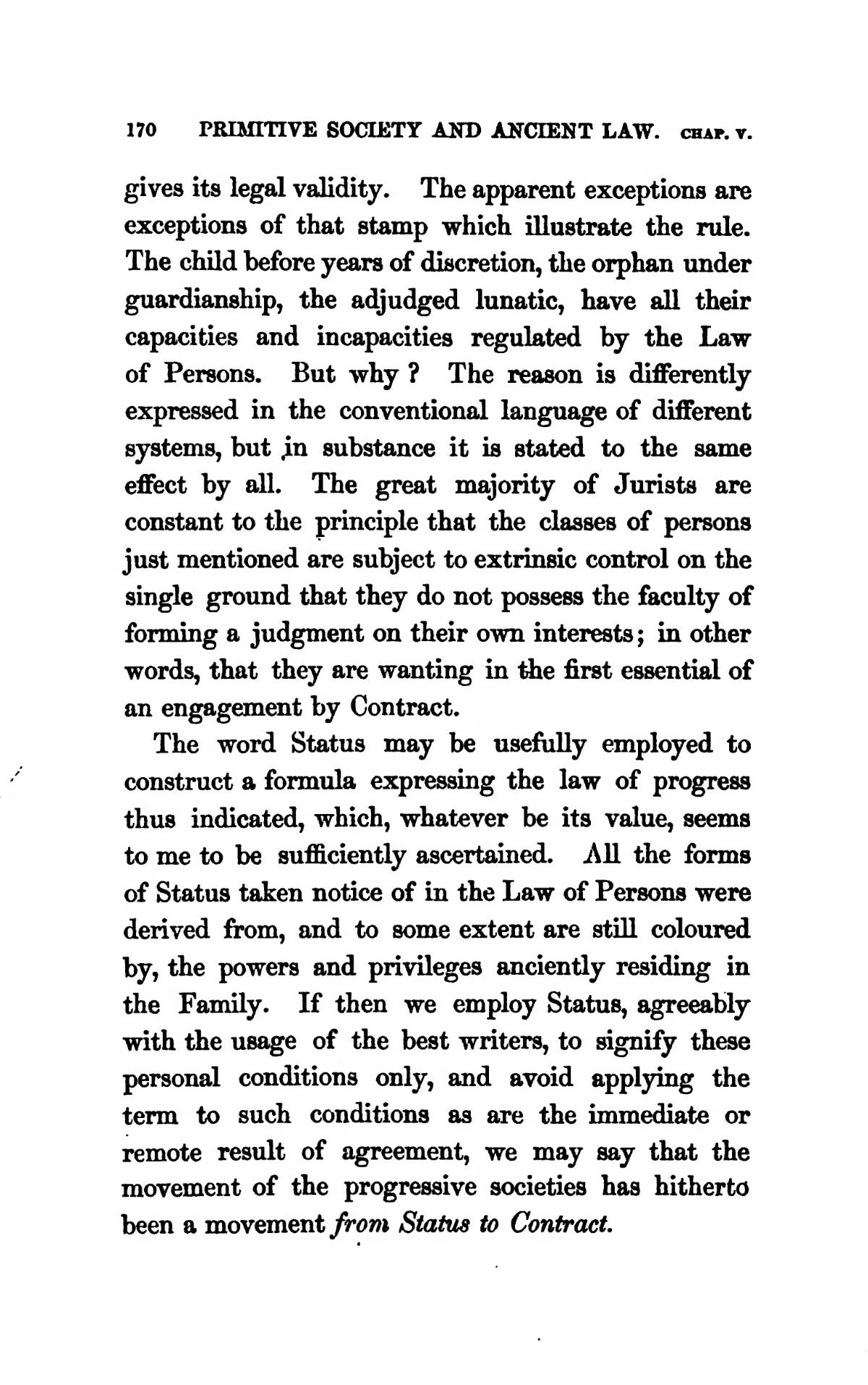gives its legal validity The apparent exceptions are exceptions of that stamp which illustrate the rule. The child before years of discretion, the orphan under guardianship, the adjudged lunatic, have all their capacities and incapacities regulated by the Law of Persons. But why? The reason is differently expressed in the conventional language of different systems, but in substance it is stated to the same effect by all. The great majority of Jurists are constant to the principle that the classes of persons just mentioned are subject to extrinsic control on the single ground that they do not possess the faculty of forming a judgment on their own interests; in other words, that they are wanting in the first essential of an engagement by Contract.
The word Status may be usefully employed to construct a formula expressing the law of progress thus indicated, which, whatever be its value, seems to me to be sufficiently ascertained. All the forms of Status taken notice of in the Law of Persons were derived from, and to some extent are still coloured by, the powers and privileges anciently residing in the Family. If then we employ Status, agreeably with the usage of the best writers, to signify these personal conditions only, and avoid applying the term to such conditions as are the immediate or remote result of agreement, we may say that the movement of the progressive societies has hitherto been a movement from Status to Contract.
